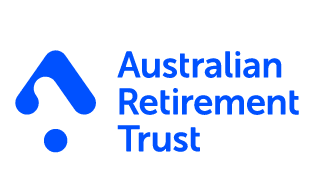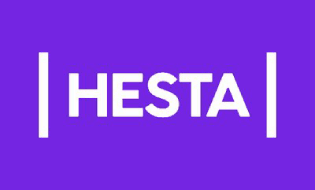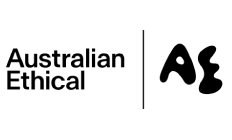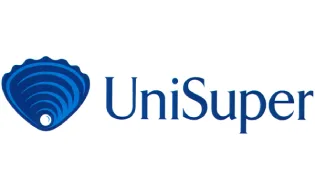Compare these super funds & more








Compare other products
We currently don't have that product, but here are others to consider:
How we picked these
The information in this table is based on data provided by SuperRatings Pty Limited ABN 95 100 192 283, a Corporate Authorised Representative (CAR No.1309956) of Lonsec Research Pty Ltd ABN 11 151 658 561, Australian Financial Services Licence No. 421445. In limited instances, where data is not available from SuperRatings for a product, the data is provided directly by the superannuation fund.
*Past performance data and fee data is for the period ending December 2025
Key takeaways
- When you compare super funds, look for low fees and high long-term performance returns.
- If you don't want to choose your investment option you'll be placed in your super fund's default option (MySuper).
- If you're in your 20s, 30s or 40s it's generally recommended to choose a high growth super fund option.
How to compare super funds
Here are 6 key features to look for.
Low fees
A general rule of thumb is to make sure your superannuation fees are less than 1% your balance per year (so for a $50,000 balance, aim for annual fees under $500).
High long-term performance
Look at the 5 and 10 year super fund performance - you want a fund that has consistent, strong performance rather than a one-off good year. For a standard balanced option, 10-year performance of at least 7% p.a. is quite good. If it's a high growth option, you can expect 10-year performance of at least 8 or 9% p.a.
An investment strategy that suits your age
When you join a super fund you'll initially be placed in its default product option which is called the MySuper product (usually this is the balanced option). But you might be better switching to another super investment option instead.
Generally speaking, you can take on more risk while you're young by opting fot a high-growth investment option.
An investment strategy for your risk appetite
Some funds offer life-stage investment options which adjust your investments as you get older so you're not taking on too much risk. Others will offer pre-mixed options based on certain risk levels and regardless of age, e.g. balanced, conservative or high growth.
An investment approach that aligns with your values
If you're passionate about investing ethically and want to exclude certain industries such as fossil fuels or tobacco, choose a fund that offers a sustainable or ethical investment option.
Insurance cover for your needs
Most funds will offer a default level of cover for death and TPD insurance automatically when you join. If you need more cover, for example, income protection, check if the fund offers it before joining. Or, you might decide you don't need insurance cover at all.

"I ignored my super balance for years. I even kept an old fund open with a few thousand dollars in it. Bad idea. Then I consolidated funds and switched from my default balanced option to a higher growth, higher risk option. This suits me because I am decades from retirement, so I can handle some volatility. And growth is my main objective. I only wish I'd done it earlier in life!"
How to choose the right super fund for you
If you're under 35
Because you have so much time on your hands, it's generally recommended you invest via a high-growth investment option. Shares can be volatile in the short term but continue to perform exceptionally well over the long term.
If you're 35–55
When you're in your 30s and 40s, you still have 15–30 years before retirement, which is still plenty of time to stay invested in a high-growth option. As you get closer to 50 you could consider gradually reducing your exposure to shares by switching to a balanced option.
If you're over 55
When you're in your 50s it's generally advised to have a more balanced mix of investments. Your super will stay invested for many years even after you turn 55 so it's important to have some exposure to shares so your balance continues to grow, but you might not want all your balance invested in shares.
Remember, there's no set rule for how you should invest based on your age alone, these are just some general ideas to get you started.

"You don't need to choose an investment option when you join a new fund if you don't want to. The default options are designed to suit most people, and many are among the top-performing funds each year. If you do want to change your super investment option later, you can do this easily by logging in to your account online or via the fund's mobile app. Also, keep in mind you can split your account balance between various options. This could be a good solution if you can't decide between two different investment options."
Super funds guides and resources

Super funds for specific needs

Types of super funds
Finder data found 58% of Australians are with the super fund their employer chose for them. But what if this fund isn't great? If you're stuck in an underperforming fund, it could cost you hundreds of thousands of dollars by the time you retire.
Steps to switch funds
1. Choose a new fund. The comparison table above can help you choose a new super fund.
2. Join the new fund. Complete the online application form available on the fund's website.
3. Move your super into your new fund. Just enter the details of your previous fund when you submit the application form and the new fund will arrange for your balance to be transferred over - you don't need to do this yourself.
4. Let your employer know. Let your employer know right away so they can pay your next super guarantee payment to the correct fund.
If you need a bit more help, see our guide on how to change super funds for a detailed process.
Thousands of people compare super funds with Finder every month
4.7 average rating from 812 reviews






Frequently asked questions for super funds
How does the Finder Score work?
Sources
Ask a question
56 Responses
Read more on Super Funds
-
How to make the most of the $5 trillion wealth transfer
Australian women are set to inherit the majority of the $5 trillion wealth transfer taking place over the next decade. This guide helps women over 45 understand how to manage, protect and grow their inheritance to create financial freedom and a lasting legacy.
-
Compare pension funds that give you an annual income in retirement
Compare pension funds and create a flexible, tax-effective income stream in retirement.
-
How much super should I have?
The average super balance is $154,350. Compare your super balance against the average balance for your age group to see if yours is on track.
-
Worst Super Funds
Here’s a current list of the worst-performing super funds in Australia and steps for how to switch to a better fund.
-
Retirement planning in Australia
Explore essential components of retirement planning for a secure future. Dive into the intricacies of retirement planning, covering vital elements such as investment strategies, savings goals, and risk management. Gain valuable insights to chart your path towards a secure and fulfilling retirement.
-
High growth super funds Australia
A high growth super fund invests more of your super into growth assets like shares, aiming for higher returns over the long term.
-
Best Super Funds Australia
We've analysed Australian super funds to find the best-performing super funds, the best industry super funds and the best super fund for low fees. Find the right super fund for you.
-
ING Living Super: Performance, features and fees
ING Living Super offers easy online access and a choice of flexible investment options to suit your life stage and retirement goals.
-
Superannuation for sole traders and self-employed
Self-employed super contributions are a great way to boost your retirement savings, but there are some rules. See rules for contributions and compare super funds if you're self employed.
-
Best super funds for teenagers
When you start your first job you'll need to open a bank account, a super fund and understand what your tax obligations are.




I’m 64 this year intending to work fulltime for next 3 years. I have $485k in Rest Super.
How does this compare?
Hi Gary,
According to the latest data from The Association of Super Funds Australia the median super balance for men aged 60-64 is $205,385.
You can see more about this here: https://www.finder.com.au/super-funds/how-much-super-should-i-have
Thanks,
Alison
Hi
I am self employed and have pretty low super and am currently with hub 24 but want to compare other companies
Hi Craig,
You can compare a range of super funds here: https://www.finder.com.au/super-funds
You can use the filters on the left hand side to search for specific funds / brands, or you can also search by risk level.
Thanks,
Alison
FOR the retired with $400 0000 in super ,is there a better/ worse industrial fund?
Hi,
The right super fund for you depends on so many factors such as your age, retirement status and financial situation. It’s best to seek personal advice from a financial advisor around individual products.
Thanks,
Alison
Hi, can I please obtain the super comparison stats in excel so that I can rank them?
Hi KG, We’re not able to share this data in excel, but hopefully you’re able to use the info in this guide to make an informed decision.
Can I speak to somebody over the phone about changing my superannuation, to an industrial base super fund?
I have already entered a question earlier but cannot seem to be able to find a reply from you.
Hi Kenneth, We don’t provide a phone service unfortunately. You might want to consider speaking to a financial adviser to help guide your decision.